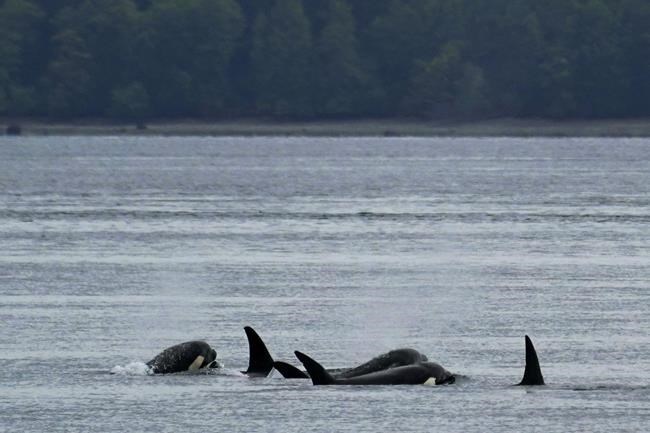ZEBALLOS, B.C. — Intense efforts are underway to reunite an orca calf with its family pod after its mother was stranded and died in a tidal lagoon near the remote northern Vancouver Island village of Zeballos.
The Fisheries Department said in a statement Monday a highly complex operation is underway to entice the juvenile whale in the lagoon to rejoin its pod, but "time is of the essence."
"DFO staff on site are currently focused on doing everything possible to reunite the young whale with its pod."
Its mother died Saturday and the calf stayed nearby, but the department said the younger whale needs to make its way to the open ocean to find its other family members.
Marine mammal rescue officials within the department, area First Nations leaders, scientists and volunteers are all in the area to help save the calf, which is about two years old.
The Marine Education & Research Society said in a social media post that the dead animal has been identified as a 15-year-old Bigg's killer whale, given the designation of T109A3, and she had a calf in 2022.
Members of the Zeballos-area Ehattesaht First Nation, who tried to save the stranded orca on the weekend, were out in boats on the ocean Monday searching for the calf's pod, said a nation official.
The department said members of the area's First Nation are trained in marine mammal response and they worked to save the stranded whale by keeping her cool and attempting to refloat her.
"DFO would like to acknowledge the Nuchatlaht and Ehattesaht First Nations for their tremendous efforts to sustain and rescue the whales and for their ongoing collaboration in this incident," said the DFO statement.
The whale's body has been towed out of the lagoon, the department said.
"It was moved to a more suitable location to conduct a necropsy with the assistance of the Nuchatlaht and Ehattesaht First Nations," said DFO.
The necropsy was being performed Monday but definitive results as to the cause of death could take months to complete, it said.
This report by The Canadian Press was first published March 25, 2024.
The Canadian Press



